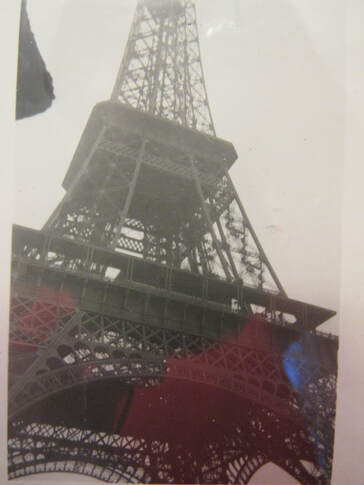 At three o’clock on the morning of the 15th of February, 1942, sixty French police inspectors set out across occupied Paris to make pre-planned arrests. Over the next forty-eight hours, they banged on doors, forced their way into houses, shops, offices and storerooms, searched cellars and attics, pigsties and garden sheds, larders and cupboards. They found notebooks, addresses, false IDs, explosives, revolvers, propaganda tracts, expertly forged ration books and birth certificates, as well as blueprints for attacks on trains. There were dozens of torn postcards, train timetables and tickets that would serve as passwords when matched with those held by others working in the Resistance. Their haul included three million anti-German and anti-Vichy tracts, three tons of paper, two typewriters, eight duplicating machines, 1,000 stencils, 100 kilos of ink and 300,000 francs. One hundred and thirteen people, of whom thirty-five were women, were arrested and imprisoned in a fort outside of Paris. Nine months later on the snowy morning of January 24th, 1943, thirty of those women joined two hundred others like themselves, arrested from all parts of occupied France, on the only train, during the entire four years of German occupation, to take women of the French Resistance to their final destination—Auschwitz. Only forty-nine would return. Among the women were teachers and secretaries, students, chemists, farm workers, housekeepers, writers and housewives; a singer at the Paris Opera, a mid-wife, a dental surgeon. They had distributed anti-Nazi leaflets, printed subversive newspapers, hid resisters, secreted Jews to safety, transported weapons, and conveyed clandestine messages. Strangers to each other, hailing from villages and cities, these brave women were united in hatred and defiance of their Nazi occupiers. In 2008, Carolyn Moorehead, renown writer and biographer whose works include biographies of Martha Gellhorn and Bertrand Russell, went on a search for the women who had huddled together on that train. She found seven of the women still alive, but only four who could sit and talk; three were too frail to welcome visitors. Beginning in 2009, Moorehead began looking for those who did not return from the Nazi camp or who had died since. Covering the length and breadth of France, the descendants, some now in their seventies, produced letters, photographs, and diaries that gave intimate pictures of the women’s lives and their captivity. Moorehead published A Train in Winter in 2011, drawing on interviews with the women and their families, as well as the families of others; German, French, and Polish archives; and documents held by World War II resistance organizations. It uncovers a dark chapter of history that offers an inspiring portrait of ordinary people, of bravery and survival, and the remarkable, enduring power of female friendship. I found A Train in Winter in a public library for-sale shop and could not keep from buying it. I have already found the story compelling. Moorehead has a paragraph in the preface about the story she tells: “This is a book about friendship between women, and the importance that they attach to intimacy and to looking after each other, and about how, under conditions of acute hardship and danger such mutual dependency can make the difference between living and dying. It is about courage, facing and surviving the worst that life can offer, with dignity and an unassailable determination not to be destroyed. Those who came back to France in 1945 owed their lives principally to chance, but they owed it too in no small measure to the tenacity with which they clung to one another, though separated by every direction of class, age, religion, occupation, politics and education. They did not all, of course, like each other equally: some were far closer friends than others. But each watched out for the others with the same degree of attention and concern and minded every death with anguish. And what they all went through, month after month, lay at the very outer limits of human endurance.”
0 Comments
Leave a Reply. |
AuthorDon Willerton has been a reader all his life and yearns to write words like the authors he has read. He's working hard at it and invites others to share their experiences. |

 RSS Feed
RSS Feed